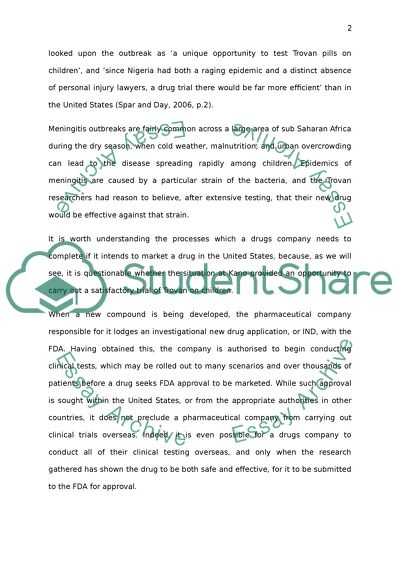Cite this document
(“Ethical Dilema Drug Tesing in Nigeria Essay Example | Topics and Well Written Essays - 2500 words”, n.d.)
Retrieved from https://studentshare.org/environmental-studies/1405809-ethical-dilema-drug-tesing-in-nigeria
Retrieved from https://studentshare.org/environmental-studies/1405809-ethical-dilema-drug-tesing-in-nigeria
(Ethical Dilema Drug Tesing in Nigeria Essay Example | Topics and Well Written Essays - 2500 Words)
https://studentshare.org/environmental-studies/1405809-ethical-dilema-drug-tesing-in-nigeria.
https://studentshare.org/environmental-studies/1405809-ethical-dilema-drug-tesing-in-nigeria.
“Ethical Dilema Drug Tesing in Nigeria Essay Example | Topics and Well Written Essays - 2500 Words”, n.d. https://studentshare.org/environmental-studies/1405809-ethical-dilema-drug-tesing-in-nigeria.


